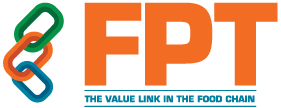Cost Effective and Ready for Export - Raisins
Product Information
Raisins (dry grapes) locally called Kishmish, are sticky and pulpy. Being produced from different varieties of grapes, they are available in various shapes, sizes, and colours.
Customer’s Requirement
Raisins are produced by sun-drying the grapes on the fields or on the racks specially built for drying in the open. During drying, raisins are prone to be affected by foreign material – Dust, sand, stones, twigs, etc. Further, they need to be graded and cleaned as per the customer's requirements. For cleaning and grading, they were required to employ huge manpower which was a time-consuming job. Also, being an exporter, they need to follow strict hygiene standards.
Aim for the solution:
1. Clean Raisins: Post drying, raisins are still connected with the stems, which are to be removed. Also, they are contaminated with sand, stones, and dust which accumulate in the product.
2. Graded Raisins: Each raisin has its different sizes, they need to grade it as per the sizes and remove the pulp-less product.
3. Less manpower dependency: To grade the product manually, requires a huge amount of workers.
4. Increased productivity: Owing to manual grading, they were able to process 3 – 4 tons/day, which is too little as per the market demand.
5. Hygienic product: Due to manual intervention at various stages of processing and practices being carried out, hygiene becomes a major challenge in the industry.
Challenge
The nature of the product was hygroscopic and they were previously using another drag conveyor to get sugar granules transferred to their existing mixer, but this system had frequent rope breakage issues and it was not easy for maintenance as there was no provision for easy cleaning.
Solution
Raisin Processing Line: The line is supplied by BIGTEM, Turkey, manufacturers of the various fruits and vegetables processing lines. The raisin processing line includes:
WASHING ——> GRADING/SORTING ——> PACKAGING
Washing line: The line starts with block-breaking wherein the raisin blocks are broken and singulated for processing. Raisins are further cleaned by removing the stems and washed to remove the dust along with stone removal. Post washing, the product is dried to remove the surface moisture.
Grading and Sorting Line: Depending on the size and the shapes of the raisins, they are graded using vibrators. With the use of the perforated screens, the vibrators do the grading and then are fed into the laser sorter for removal of the defects.
Packing Line: Post sorting the raisins are manually inspected and then further fed into the packing machine. The raisins are packed automatically into the boxes as per the weight and further sealed and sent to the customers.
Outcome
An automated line was supplied to the customer which had the following benefits:
Increased Capacity: From 3 – 4 Tons/day to 3 – 4 Tons/hr.
Hygienic: Less manhandled and completely automated plant led to the hygiene and totally clean product as per the export standards.
Reduction of manpower: For 40 – 50 employees earlier, now it’s reduced to only 5 persons working alongside the machine.
Higher Efficiencies: Automated processing facilitates higher efficiency in reduced wastage occurring in manual operation and desired results at minimal costs.
Principal
Since 1973, BIGTEM has been manufacturing and supplying various equipment and process lines for the different fruits and vegetable processing all across the globe. Catering 60 countries in 5 continents, with sales and service team available at all the locations. Bigtem uses the most advanced materials to ensure hygiene and durability.






